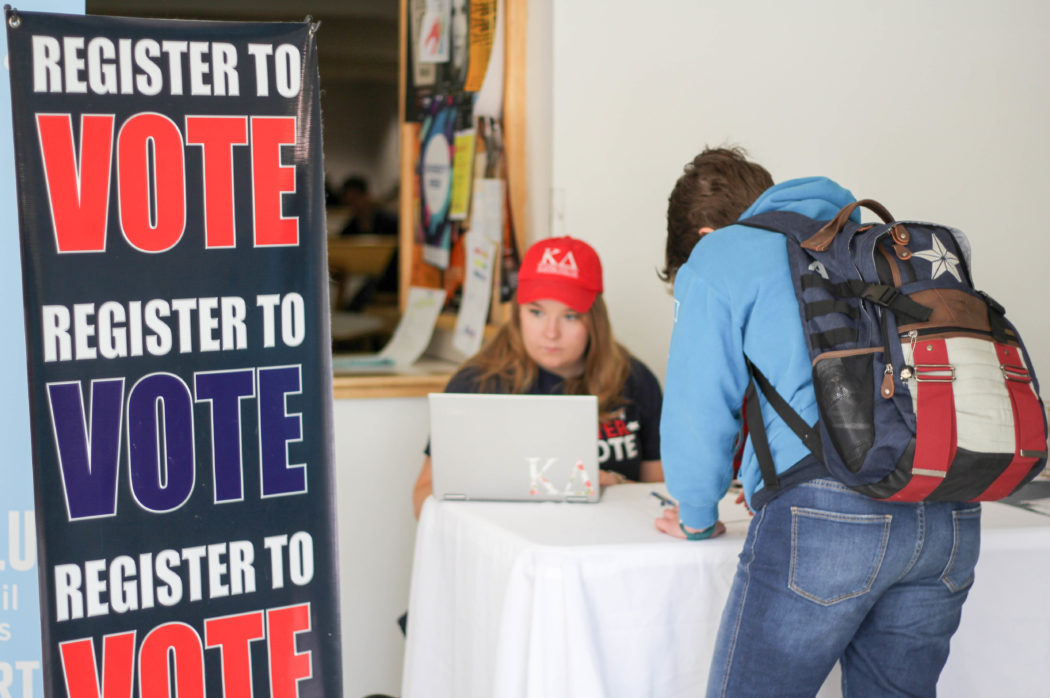GRC begins campaign to bridge gap between USU and Logan City
For Bridget Brown, the annual voter registration drive put on by the Government Relations Council (GRC) is more important now than ever — because registered students can vote in the Logan City Council election on Nov. 7.
Brown, the Utah State University Student Association student advocate vice president, said the election comes at a time when there is “a huge lack of communication” between the two entities. It’s a problem Brown said she and the GRC hope to fix after the new council is elected.
“Right now what we’re really doing is identifying issues that affect students and we’re doing all the research so that come November 8 when our new city council is set and we have a new mayor set, we can kind of start hitting them hard,” she said.
Although Brown hopes to improve communication between Logan City and USU students, she said she is hesitant and unsure if the city council will be willing to listen to student concerns.
“I feel like, right now, if we were to go to the city council and say ‘We don’t like this, we don’t want this,’ they’re going to discount us and say, ‘Why should we listen to you? You’re in a constant turnover state where new students come and it’s always changing,’” Brown said.
Holly Daines, an eight-year member and current chairwoman of the Logan City Council, said collaboration between the council and university students is difficult due to “the nature of the transiency of students.”
Daines added the council has “tried reaching out a number of times” but faces the issue of student turnover.
“We both have good intentions, but by the time you get a relationship established, they’ve moved on, there are no elections, new officers,” she said. “I think it’s not for lack of trying, it’s maybe more the circumstances of students and student government positions’ turnover on a regular basis.”
However, Brown said she feels this is “the wrong outlook, in that students are constant and our needs are constant and we’re a part of the city, whether they like it or not.”
Two issues both the city and students continuously face are parking and zoning around the university, Brown said. She added this is especially a problem for apartment complexes not officially owned by the university, but inhabited primarily by students.
“The current city council has done a lot to make zoning non-friendly to students,” Brown said.
In addition, Daines said the council “struggles with the over-occupancy issue,” referring to the city’s law which prohibits more than three “unrelated individuals” from living together. The law does not pertain to those who live in the city’s “campus residential zone,” which is defined on the city’s website as “adjacent to large educational centers such as Utah State University.”
Daines added the law is in place to keep the city orderly and convenient for families.
“Students may come and go at late hours and different hours,” she said. “There are just conflicts, different schedules.”
Although only 90 students registered to vote in this week’s registration drive, Brown still hopes students will share their concerns with the city council. The GRC has also designated two members to attend each city council meeting and represent students.
“Even if they don’t debate anything or have any part of the meeting, they just let the city council know that we’re here and that students are listening,” she said.
@Alison_berg
Photo by Erica McNeill

